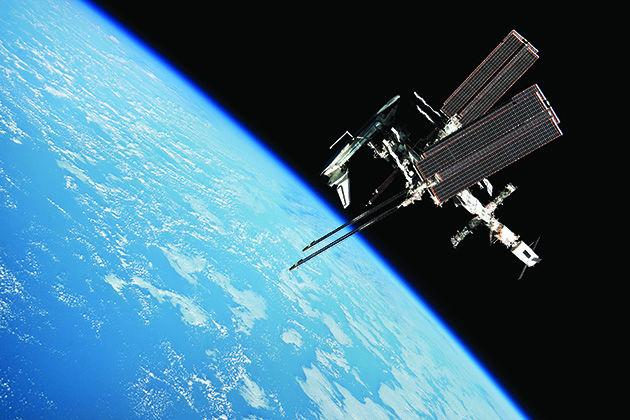Sputnik and the ensuing Space Race may have been about points of national pride, but today private companies eye the sky for a different reason — lucrative government grants and large potential profits.
NASA announced a contract with Boeing and Space Exploration Technologies, or SpaceX, Sept. 16 to build spacecraft capable of carrying American astronauts to the International Space Station and back. The announcement highlighted a shift in America’s space policy — private companies, not government agencies, are now expected to take a larger role in the future of U.S. manned spaceflight.
Aerospace engineering professor David Kanipe, who previously worked at NASA for 38 years, compared the dawn of commercialized space to the evolution of the airline industry. Airplanes were used solely in war before branching into mail service. Today airplanes are extensively used for travel and leisure, and Kanipe said the evolution of commercial space might follow the same pattern.
“Before you had one source, and now you have a lot of different sources that provide multiple points of view and creates a marketplace of ideas,” Kanipe said, referring to NASA’s past dominance and today’s spectra of private space companies. “Now you have different ideas, and it allows for freer expression. As long as the market can support it, it will create a more reliable mean of innovation.”
Aerospace engineering senior Alex Ward interned at Boeing this summer where he worked on NASA’s next generation space launch system. Ward said the increased interest in space will widen a currently narrow field, allowing for increased job prospects for students such as himself.
“It opens up career opportunities for us because, before, it was a very narrow field where the government contracted to a handful of companies, whereas now there seem to be a lot of companies popping up,” Ward said, referring to SpaceX and Sierra Nevada, two private companies intent on developing space technology.
NASA awarded Boeing and SpaceX $4.2 billion and $2.6 billion, respectively, to inherit the responsibility of sending Americans into low-earth orbit. Both companies already hold lucrative contracts in the public and private sector for operations ranging from ISS supply deliveries to TV satellite launches, and there is speculation that outer space may hold further riches.
Excitement for commercial space is high, said Gregory Chamitoff, former astronaut and aerospace professor of engineering practice. He said there are many opportunities in space that could spell profits for American companies, with some companies created in anticipation for future industries, such as space mining.
“The thought is that mining could be very lucrative,” Chamitoff said. “Materials that are rare could become accessible and some companies are already laser focused on this idea of asteroid mining. I imagine that there are going to be companies that want to go to space to do manufacturing or to do their own science or medicine.”
While there is interest in commercial space, Chamitoff said there are many obstacles before a commercial space industry fully takes off. For instance, it is still highly expensive to send anything into space.
Chamitoff said commercial spaceflight may one day lower the cost of space travel, but this can only happen through an increase in space-based destinations. The International Space Station is the only current destination readily available, and Chamitoff said the ISS has to stay up long enough for private industry to catch up.
“If we lose the space station to a lack of support for it in 2024, the whole model falls apart,” Chamitoff said. “The space station has to last long enough for these companies to get operational, get the cost down, build enough vehicles to have it be a more regular process and open up the opportunity for more companies to put things up there, whether it’s for science or recreation.”
Chamitoff said the emergence of commercial space does not mean the end of NASA, rather that the government agency will have the resources to turn to further exploration of space without having to concern itself with building it’s own transportation.
“NASA is there for exploration, science and to further human understanding of our universe,” Chamitoff said. “There’s a partnership between NASA and commercial space. Commercial space is going to provide transportation to orbit and other services, enabling NASA to focus on more distant exploration and science. That’s the vision right now.”
Chamitoff said while profits might be the concern of the companies that make it to space, the scientific investigation characteristic of NASA will not take a back seat, mainly because large companies are more interested than the government in investing money in various long-term projects, and the knowledge that comes from companies trying to do new things will continue to push the boundaries of human understanding.
“Pure exploration for its own sake, or the value of someday seeing life from another planet, there’s no way to put a price tag on that,” Chamitoff said. “The knowledge and understanding we gain from exploration is a very long term investment in the future.”
Photo provided.
US space policy shifts with privatized contract
October 1, 2014
0
Donate to The Battalion
$2790
$5000
Contributed
Our Goal
Your donation will support the student journalists of Texas A&M University - College Station. Your contribution will allow us to purchase equipment and cover our annual website hosting costs, in addition to paying freelance staffers for their work, travel costs for coverage and more!
More to Discover










